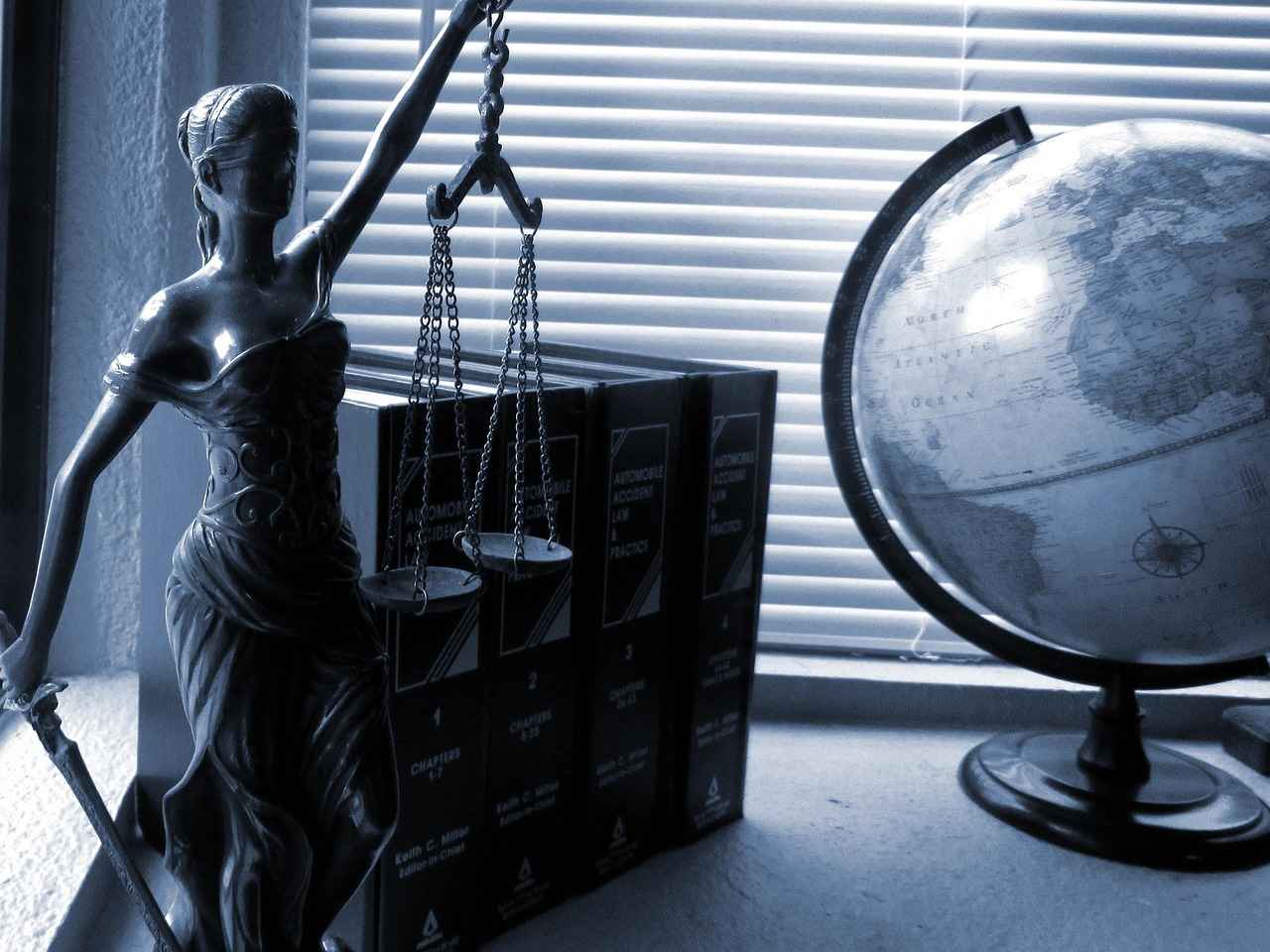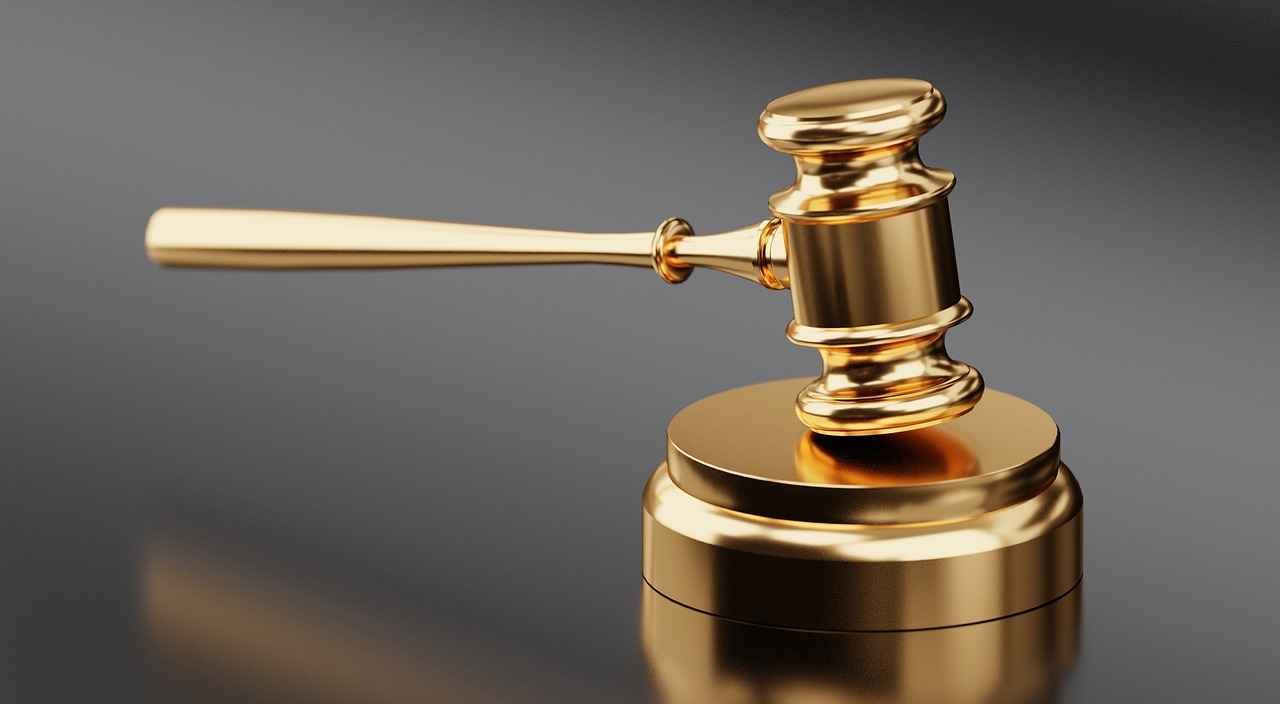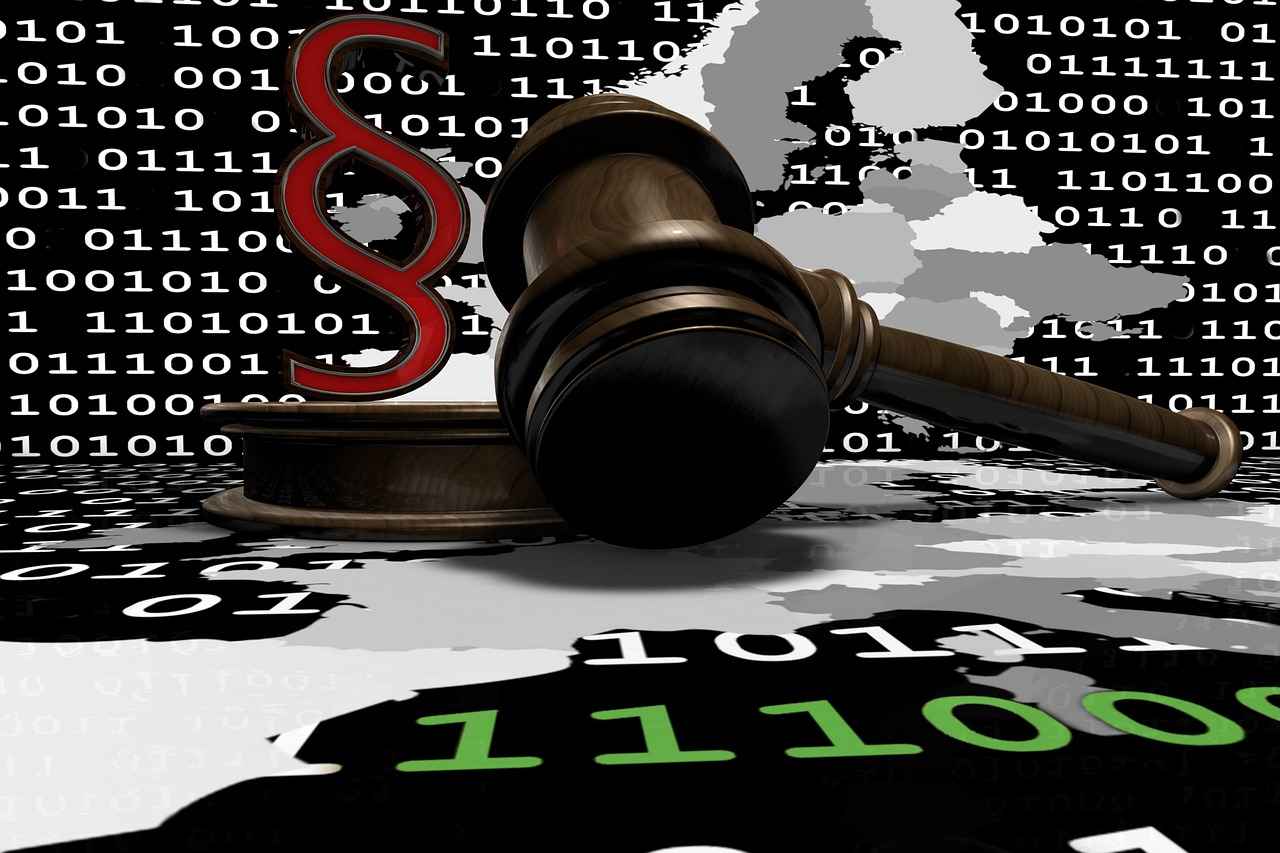This article explores the most common types of legal cases in the U.S. and offers expert guidance on finding qualified attorneys in Stockton, California.
In the intricate landscape of the U.S. legal system, understanding the various types of legal cases is essential for anyone seeking justice. From personal injury to family law, the breadth of legal issues can be daunting. Below, we delve into the most prevalent types of legal cases and provide expert advice on how to find the best lawyers and attorneys in Stockton, California.
Understanding Personal Injury Cases
Personal injury cases often stem from accidents or negligence, leading to significant physical or emotional harm. Victims may seek compensation for medical bills, lost wages, and pain and suffering. To navigate these cases effectively, it is crucial to document all evidence, including medical records and witness statements. When seeking an attorney, look for those with a strong track record in personal injury claims, preferably with testimonials from previous clients.
Medical Malpractice: What You Need to Know
Medical malpractice occurs when healthcare professionals fail to provide the standard of care, resulting in harm to patients. These cases can be complex, requiring a thorough understanding of medical protocols and legal standards. When searching for an attorney, ensure they have experience in medical malpractice and can provide references from past clients. Look for attorneys who are members of relevant professional organizations, as this indicates a commitment to staying updated on medical laws.
Breach of Contract: Legal Implications and Remedies
Breach of contract cases arise when one party fails to fulfill their contractual obligations. Understanding the legal implications is vital for protecting your rights. When hiring an attorney for breach of contract issues, seek those with a strong background in contract law. Ensure they can articulate your rights clearly and have a strategy for resolving disputes, whether through negotiation or litigation.
Property Disputes: Resolving Conflicts Over Real Estate
Property disputes can involve issues such as boundary conflicts, easements, or ownership claims. These cases often require a nuanced understanding of property law. When selecting an attorney, look for those who specialize in real estate law and have experience in resolving property disputes. They should be able to guide you through the mediation process and represent your interests effectively in court if necessary.
Landlord-Tenant Disputes: Rights and Responsibilities
Landlord-tenant disputes commonly arise over lease agreements, property maintenance, or eviction processes. Knowing your rights as a tenant or landlord is crucial. When looking for legal representation, seek attorneys who specialize in landlord-tenant law and can offer clear guidance on your rights and obligations. Reviews from past clients can provide insight into their effectiveness in resolving similar disputes.
Defamation: Understanding Libel and Slander
Defamation cases involve false statements that harm an individual’s reputation. Understanding the differences between libel (written) and slander (spoken) is essential for both plaintiffs and defendants. When hiring an attorney for defamation cases, look for those with a strong background in media law and experience litigating similar cases. They should be adept at gathering evidence and navigating the complexities of free speech laws.
Employment Disputes: Navigating Workplace Conflicts
Employment disputes can encompass issues such as wrongful termination, discrimination, and wage disputes. It’s essential to understand your rights as an employee. When seeking legal counsel, look for attorneys who specialize in employment law and have a proven track record of advocating for workers’ rights. They should be familiar with both state and federal employment laws to provide comprehensive representation.
Product Liability: Holding Manufacturers Accountable
Product liability cases arise when defective products cause injury or harm. Understanding the legal standards for these claims is critical. When searching for an attorney, prioritize those with experience in product liability and a history of successful outcomes in similar cases. They should have the resources to investigate the product’s safety and hold manufacturers accountable.
Wrongful Death: Seeking Justice for Loss
Wrongful death cases are particularly sensitive, as they seek compensation for losses due to another’s negligence. Understanding the legal process is vital for grieving families. When looking for legal representation, choose attorneys who specialize in wrongful death cases and demonstrate compassion and understanding. Their experience in dealing with similar cases can help ease the burden during a difficult time.
Class Action Lawsuits: Collective Legal Action
Class action lawsuits allow groups of individuals to sue for similar grievances, providing a powerful tool for justice. Understanding how these cases work can empower individuals. When seeking legal representation, look for attorneys with experience in managing class action lawsuits and a successful history in similar cases. They should be able to explain the process clearly and guide you through the necessary steps.
Criminal Offenses: Understanding Assault, Theft, and More
Criminal offenses, including assault and theft, carry serious legal repercussions. Understanding your rights and the legal process is crucial if you face criminal charges. When hiring a criminal defense attorney, look for those with a strong background in criminal law and a proven track record of defending clients in similar cases. Their experience can significantly impact the outcome of your case.
Family Law Cases: Divorce and Custody Issues
Family law encompasses divorce, child custody, and support issues. Navigating these emotionally charged disputes requires skilled legal representation. When searching for a family law attorney, prioritize those with experience in the specific issues you face, whether custody disputes or asset division. They should be empathetic and capable of providing clear guidance through the legal process.
Bankruptcy: Navigating Financial Relief Options
Bankruptcy cases offer individuals and businesses a way to manage overwhelming debt. Understanding the different types of bankruptcy can help you make informed decisions. When looking for a bankruptcy attorney, choose someone with specialized knowledge in bankruptcy law and a successful history of helping clients achieve financial relief. They should be able to explain the implications of each bankruptcy type clearly.
Finding the right attorney for your legal needs in Stockton, California, involves careful consideration of their expertise, experience, and client reviews. Utilize platforms like Avvo and Martindale-Hubbell to research attorneys, checking their credentials and areas of specialization. Look for red flags, such as a lack of transparency about fees or unwillingness to provide references. With the right legal guidance, you can navigate the complexities of the U.S. legal system and secure the justice you deserve.

Understanding Personal Injury Cases
Personal injury cases represent a significant segment of the legal landscape in the United States. These cases typically arise from accidents or negligence, resulting in both physical and emotional harm to individuals. Understanding the intricacies of personal injury law is crucial for anyone who finds themselves in such a situation. The outcome of these cases can have a profound impact on a victim’s recovery, both financially and emotionally.
When pursuing a personal injury claim, it is essential to establish that the other party was at fault. This often involves demonstrating that their actions were negligent and that this negligence directly led to the injuries sustained. Common examples include automobile accidents, slip and fall incidents, and workplace injuries. Collecting evidence, such as medical records, eyewitness testimonies, and police reports, plays a pivotal role in building a strong case.
Victims of personal injury cases often face a myriad of challenges, from dealing with medical bills to navigating the emotional toll of their injuries. Therefore, having a qualified attorney can make a significant difference. A skilled lawyer will not only guide victims through the legal process but also help them understand their rights and the compensation they may be entitled to. This compensation can cover medical expenses, lost wages, and pain and suffering, among other damages.
When searching for a personal injury attorney, it is vital to consider several factors. First, look for a lawyer with extensive experience in handling personal injury cases. Check their track record for successful settlements or verdicts. Additionally, consider their reputation within the legal community; client reviews and testimonials can provide valuable insights.
Another important aspect is the attorney’s fee structure. Many personal injury lawyers work on a contingency fee basis, meaning they only get paid if you win your case. This arrangement allows victims to pursue justice without the burden of upfront legal fees. However, it is crucial to clarify the percentage they will take from any settlement or award.
Finally, trust your instincts. A good attorney should communicate clearly, answer your questions, and make you feel comfortable throughout the process. If you feel uneasy or pressured, it may be a red flag to consider other options. By taking the time to research and choose the right personal injury attorney, you can significantly improve your chances of a favorable outcome in your case.

Medical Malpractice: What You Need to Know
Medical malpractice is a complex area of law that arises when healthcare professionals fail to provide the standard of care expected in their field, resulting in harm to patients. Understanding the nuances of these cases is essential for anyone considering legal action. This article will delve into the key components of medical malpractice claims, the process of pursuing such claims, and how to find the right attorney to represent you.
At its core, medical malpractice involves negligence. This means that a healthcare provider, such as a doctor, nurse, or hospital, did not act with the level of care that a reasonably competent provider would have exercised in similar circumstances. To establish a medical malpractice claim, a plaintiff must typically prove four elements:
- Duty of Care: The healthcare provider had a legal obligation to provide care to the patient.
- Breach of Duty: The provider failed to meet the standard of care.
- Causation: The breach of duty directly caused injury or harm to the patient.
- Damages: The patient suffered actual damages, such as physical pain, emotional distress, or financial loss.
Gathering evidence is crucial in medical malpractice cases. This may include medical records, expert testimony, and documentation of the injuries sustained. It’s also important to note that there are time limits, known as statutes of limitations, which dictate how long an individual has to file a claim after an alleged act of malpractice.
When seeking legal representation for a medical malpractice case, it is essential to find an attorney who specializes in this field. Here are some practical tips for finding the right lawyer:
- Look for Specialization: Choose an attorney who specializes in medical malpractice law and has a proven track record in handling similar cases.
- Check Credentials: Verify the attorney’s qualifications, including their education, bar admissions, and any relevant certifications.
- Read Reviews: Look for client testimonials and reviews online to gauge the attorney’s reputation and success rate.
- Consult Multiple Attorneys: Schedule consultations with several attorneys to discuss your case and assess their approach and expertise.
- Ask About Fees: Understand the attorney’s fee structure, including whether they work on a contingency basis, which means they only get paid if you win your case.
Be cautious of red flags when hiring a medical malpractice attorney. Avoid lawyers who make unrealistic promises about the outcome of your case, those who lack experience in medical malpractice, or those who pressure you into signing a contract quickly. A trustworthy attorney will take the time to explain the process and answer your questions thoroughly.
In summary, medical malpractice cases can be challenging, but understanding the criteria and finding the right legal representation can significantly impact the outcome. If you believe you have a valid claim, consult with an experienced attorney who can guide you through the complexities of the legal system and advocate for your rights.

Breach of Contract: Legal Implications and Remedies
A breach of contract occurs when one party fails to fulfill their obligations as outlined in a legally binding agreement. This can take many forms, including failing to deliver goods or services, not making timely payments, or not adhering to agreed-upon terms. Understanding the legal implications of a breach is crucial for both parties involved, as it can significantly impact their rights and options moving forward.
In the United States, the legal framework surrounding breach of contract cases is primarily governed by state law. However, some general principles apply universally. When a breach occurs, the non-breaching party is typically entitled to seek remedies, which can include:
- Compensatory Damages: These are designed to compensate the non-breaching party for losses directly resulting from the breach.
- Consequential Damages: These are additional losses that occur as a consequence of the breach, which may not be directly tied to the contract itself.
- Specific Performance: In some cases, a court may order the breaching party to fulfill their contractual obligations rather than awarding monetary damages.
- Rescission: This allows the non-breaching party to cancel the contract and be relieved from any further obligations.
It’s important to note that not all breaches are treated equally. Courts generally classify breaches as either material or minor. A material breach significantly undermines the contract’s purpose, while a minor breach may allow for partial recovery but does not void the contract entirely. Understanding these distinctions can help you assess your situation more accurately.
When navigating a breach of contract case, it’s advisable to consult with an experienced attorney who specializes in contract law. They can guide you through the complexities of your specific case, ensuring that your rights are protected. Additionally, when hiring a lawyer, look for the following:
- Experience: Ensure the attorney has substantial experience dealing with breach of contract cases.
- Reputation: Research their standing in the legal community and read client reviews.
- Specialization: Attorneys who specialize in contract law will have a deeper understanding of the nuances involved.
- Communication: Choose a lawyer who communicates clearly and promptly, keeping you informed throughout the process.
Be wary of red flags such as lawyers who guarantee outcomes or those who lack transparency regarding their fees. A trustworthy attorney will provide a clear outline of potential costs and the process involved in pursuing your case.
In conclusion, understanding the legal implications of a breach of contract and the available remedies can empower you to make informed decisions. Whether you are the party affected by the breach or the one accused of breaching a contract, seeking legal counsel is essential to navigate these complex issues effectively.

Property Disputes: Resolving Conflicts Over Real Estate
Property disputes are a common source of conflict, often arising from issues related to ownership, boundaries, or easements. These disputes can be complex and emotionally charged, making it essential for individuals to understand the legal framework governing real estate. Navigating these conflicts effectively requires not only knowledge of the law but also the skills of a qualified attorney.
One of the most frequent types of property disputes involves ownership issues. This can occur when two or more parties claim rights to the same property, leading to legal battles over who holds the legitimate title. In such cases, it is crucial to gather all relevant documentation, including deeds, tax records, and any prior agreements, to establish a clear chain of ownership.
Boundary disputes are another common issue, often arising from unclear property lines. Discrepancies can occur due to poorly marked boundaries, changes in land use, or even neighborly misunderstandings. Engaging a professional surveyor can help clarify these boundaries, and if necessary, legal action can be taken to resolve the issue. It is important to document any physical evidence or historical data that supports your claim.
Easements refer to the legal right to use another person’s land for a specific purpose, such as accessing a road or utility lines. Disputes often arise when one party believes that their easement rights are being infringed upon. Understanding the terms of the easement and consulting with a legal expert can help clarify rights and responsibilities.
To effectively resolve property disputes, it is advisable to seek the expertise of a qualified attorney who specializes in real estate law. Here are some steps to find the right legal representation:
- Research Credentials: Look for attorneys with a strong background in real estate law and a proven track record in handling property disputes.
- Check Reviews: Online reviews and testimonials can provide insights into the attorney’s reputation and client satisfaction.
- Consult Local Bar Associations: Many local bar associations offer referral services that can connect you with qualified attorneys in your area.
- Evaluate Communication Skills: A good attorney should be able to explain complex legal terms in a way that is easy to understand.
- Avoid Red Flags: Be cautious of attorneys who promise guaranteed outcomes or require large upfront fees without a clear plan.
In larger metropolitan areas like New York City, Los Angeles, and Chicago, the competition among legal professionals can be intense. Therefore, it is crucial to take the time to vet potential attorneys thoroughly. Consider scheduling consultations with multiple lawyers to discuss your case and evaluate their approach.
In summary, property disputes can be challenging, but understanding the legal aspects and engaging a knowledgeable attorney can greatly assist in resolving conflicts effectively. By following the outlined steps and being proactive in your search for legal representation, you can navigate these disputes with confidence.

Landlord-Tenant Disputes: Rights and Responsibilities
Landlord-tenant disputes are a common occurrence in the realm of rental properties, often stemming from misunderstandings or disagreements over lease agreements and property maintenance. Understanding your rights and responsibilities as both a landlord and a tenant is essential in navigating these challenges effectively.
Disputes can arise over various issues, including rent payments, security deposits, and the maintenance of the property. For tenants, knowing that they have the right to a safe and habitable living environment is crucial. This includes the landlord’s obligation to address necessary repairs in a timely manner. If a landlord fails to maintain the property, tenants may have grounds to withhold rent or seek legal remedies.
On the other hand, landlords have rights too. They have the right to receive rent on time and to expect that tenants will not cause damage to the property. If a tenant violates the lease agreement, such as by engaging in illegal activities or failing to pay rent, landlords can initiate eviction proceedings. However, it is important for landlords to follow the legal process for eviction, as improper procedures can lead to delays and legal complications.
To minimize disputes, both parties should ensure that lease agreements are clear and comprehensive. This includes specifying terms related to rent payment deadlines, maintenance responsibilities, and termination conditions. Keeping open lines of communication can also help resolve potential issues before they escalate into more serious conflicts.
If disputes do arise, mediation can be an effective first step. Many local jurisdictions offer mediation services that can help both landlords and tenants reach amicable solutions without resorting to litigation. If mediation fails, it may be necessary to seek legal counsel to understand your options and rights under the law.
In conclusion, understanding your rights and responsibilities in landlord-tenant relationships is vital. By being informed and proactive, both landlords and tenants can work towards minimizing disputes and fostering a positive rental experience.

Defamation: Understanding Libel and Slander
Defamation is a significant legal issue that can have far-reaching consequences for both individuals and businesses. It involves making false statements that can harm a person’s or entity’s reputation. Understanding the intricacies of libel and slander is essential for anyone involved in such cases, whether as a plaintiff or a defendant.
Defamation can be categorized into two main types: libel and slander. Libel refers to defamation that occurs in written form, such as in newspapers, books, or online platforms, while slander pertains to spoken statements. Both forms can lead to significant reputational damage and, consequently, legal action.
To establish a defamation claim, a plaintiff typically needs to prove several key elements:
- False Statement: The statement made must be untrue.
- Publication: The statement must be communicated to a third party.
- Harm: The statement must cause harm to the plaintiff’s reputation.
- Fault: Depending on the plaintiff’s status (public figure or private individual), different standards of fault apply.
For public figures, the standard is higher; they must prove actual malice, meaning the statement was made with knowledge of its falsity or with reckless disregard for the truth. In contrast, private individuals need only demonstrate negligence.
When navigating a defamation case, it’s crucial to consult with a qualified attorney who specializes in this area of law. Here are some tips for finding the right legal representation:
- Research Experience: Look for attorneys with a proven track record in handling defamation cases.
- Check Credentials: Verify their education, bar admission, and any relevant certifications.
- Read Reviews: Online reviews and testimonials can provide insights into the attorney’s reputation and client satisfaction.
- Consultation: Schedule an initial consultation to discuss your case and gauge their expertise and communication style.
- Assess Compatibility: Ensure that you feel comfortable discussing sensitive information with your attorney.
Additionally, be wary of red flags when selecting a lawyer. Avoid attorneys who guarantee specific outcomes, as this can indicate a lack of professionalism. Also, be cautious of those who do not provide clear fee structures or who pressure you into making quick decisions.
In conclusion, understanding the nuances of defamation law, including libel and slander, is vital for anyone facing such allegations. By following the guidelines for finding a qualified attorney, individuals can better navigate the complexities of defamation cases and work towards protecting their reputations.

Employment Disputes: Navigating Workplace Conflicts
Employment disputes can arise from various issues that affect the workplace environment, including wrongful termination, discrimination, harassment, and unfair labor practices. Understanding your rights as an employee is crucial for effectively navigating these conflicts and ensuring a fair resolution.
When it comes to wrongful termination, this occurs when an employee is fired for illegal reasons, such as discrimination based on race, gender, age, or other protected characteristics. If you believe you have been wrongfully terminated, it is essential to gather evidence, such as emails, performance reviews, and witness statements, to support your claim. Consulting with an experienced employment attorney can help you assess your situation and determine the best course of action.
Discrimination in the workplace can take many forms, including unfair treatment based on race, gender, religion, or disability. If you experience discriminatory behavior, document specific incidents, including dates, times, and the individuals involved. This information will be vital if you decide to file a complaint with the Equal Employment Opportunity Commission (EEOC) or pursue legal action.
Another critical area of employment disputes is harassment. This includes any unwanted behavior that creates a hostile work environment, such as unwanted advances, inappropriate comments, or bullying. It is vital to report harassment to your employer’s human resources department as soon as possible. Employers are legally obligated to investigate and address such complaints. If they fail to do so, you may have grounds for a legal claim.
Understanding your rights under the Family and Medical Leave Act (FMLA) and other relevant laws is also essential. These laws protect employees who need time off for family or medical reasons. If your employer retaliates against you for taking leave, it may constitute an unlawful employment practice.
To effectively navigate employment disputes, consider the following steps:
- Document Everything: Keep detailed records of incidents, including dates, times, and descriptions of events.
- Know Your Rights: Familiarize yourself with local and federal employment laws.
- Seek Legal Advice: Consult with an attorney who specializes in employment law to understand your options.
- File Complaints: If necessary, file a complaint with the appropriate governmental agency.
- Consider Mediation: Many disputes can be resolved through mediation, which can be a faster and less adversarial process.
In major metropolitan areas like New York City and Los Angeles, there are numerous resources available for employees facing workplace conflicts. Online platforms such as Avvo and FindLaw can help you locate qualified employment attorneys in your area. Look for lawyers with experience in handling cases similar to yours and check their credentials, including bar association membership and reviews from previous clients.
Additionally, be cautious of red flags when hiring an attorney. Avoid lawyers who make unrealistic promises regarding the outcome of your case or who pressure you to sign contracts without fully explaining the terms. A trustworthy attorney will take the time to understand your situation and provide clear guidance on your legal options.
In summary, being informed about your rights and the legal framework surrounding employment disputes can empower you to take action when necessary. By documenting your experiences, seeking professional advice, and utilizing available resources, you can effectively navigate workplace conflicts and seek justice for any wrongs you may have faced.

Product Liability: Holding Manufacturers Accountable
Product liability cases are critical in protecting consumers from harm caused by defective products. These cases arise when a product fails to meet safety standards or is inherently dangerous, resulting in injury or damage. Understanding the legal framework surrounding product liability is essential for consumers who wish to seek justice against negligent manufacturers.
In the United States, product liability laws generally fall under three categories: defective design, defective manufacturing, and failure to warn. Each category presents unique challenges and requires specific legal standards to prove a claim. For instance, in a defective design case, the plaintiff must demonstrate that the product was designed in a way that was unreasonably dangerous. In contrast, a manufacturing defect occurs when an error happens in the production process, leading to a safe design becoming hazardous. Lastly, failure to warn cases involve products that lack adequate instructions or warnings, putting consumers at risk.
To successfully pursue a product liability claim, it is vital to gather evidence that supports your case. This may include:
- Documentation of the injury: Medical records and photographs of the injury can provide crucial evidence.
- Product details: Keep the original packaging, receipts, and any manuals that came with the product.
- Witness statements: Collect testimonies from anyone who witnessed the incident or has experience with the product.
Finding a qualified attorney who specializes in product liability is essential for navigating these complex cases. Here are some tips to help you find the right legal representation:
- Research local attorneys: Look for lawyers in your area who have a proven track record in product liability cases. Websites like Avvo and FindLaw can provide valuable information about attorneys’ backgrounds and client reviews.
- Check credentials: Ensure the attorney is licensed to practice in your state and has relevant experience in product liability law.
- Ask about their success rate: A lawyer’s track record in similar cases can give you insight into their ability to handle your claim effectively.
- Consultation: Schedule consultations with potential attorneys to discuss your case. This will help you gauge their expertise and how comfortable you feel working with them.
Be cautious of red flags when selecting an attorney. Avoid lawyers who make unrealistic promises about the outcome of your case or those who pressure you into signing contracts without fully explaining the terms. A trustworthy attorney will provide you with a clear understanding of the legal process and what to expect.
In conclusion, product liability cases are essential for holding manufacturers accountable for their products. By understanding the legal standards and being proactive in finding a qualified attorney, you can navigate the complexities of these cases and seek the compensation you deserve.

Wrongful Death: Seeking Justice for Loss
Wrongful death cases represent a significant area of personal injury law, focusing on the tragic loss of life due to another’s negligence or wrongful act. Such cases are not only about seeking financial compensation but also about achieving a sense of justice for the deceased and their grieving family. Understanding the intricacies of the legal process is crucial for those left behind, as it can be a complex and emotionally draining journey.
When pursuing a wrongful death claim, it is essential to establish that the death was caused by the negligence or misconduct of another party. This often involves proving that the responsible party owed a duty of care to the deceased, breached that duty, and that this breach directly resulted in the death. Common scenarios that lead to wrongful death claims include car accidents, medical malpractice, workplace accidents, and defective products.
For families navigating this challenging time, hiring a qualified attorney is vital. The right legal representation can help families understand their rights and the potential compensation available, which may include funeral expenses, lost wages, and pain and suffering. Here are some practical steps to find the best wrongful death attorney:
- Research Local Attorneys: Start by looking for attorneys who specialize in wrongful death cases within your area. Websites like Avvo and FindLaw can provide valuable insights into lawyers’ backgrounds and client reviews.
- Check Credentials: Look for attorneys with a strong track record in wrongful death cases, including their success rates and any accolades from legal organizations.
- Schedule Consultations: Most attorneys offer free initial consultations. Use this opportunity to discuss your case and assess their approach and understanding of your situation.
- Ask About Fees: Understanding the fee structure is crucial. Many wrongful death attorneys work on a contingency fee basis, meaning they only get paid if you win your case.
- Evaluate Communication: Choose an attorney who communicates clearly and shows empathy towards your situation. You want someone who is not only skilled but also supportive during this difficult time.
Throughout the legal process, it’s important to gather and preserve all relevant evidence, including medical records, accident reports, and witness statements. This information will be crucial in building a strong case. Additionally, be aware of the statute of limitations for filing a wrongful death claim, which varies by state. In California, for instance, the time limit is typically two years from the date of death.
In summary, wrongful death cases are profoundly sensitive and complicated. The emotional toll on families can be immense, and having the right legal support is essential to navigate the complexities of the legal system. By conducting thorough research, checking credentials, and ensuring open communication, families can find a qualified attorney who will advocate for their rights and help them seek the justice they deserve.

Class Action Lawsuits: Collective Legal Action
Class action lawsuits represent a powerful mechanism for individuals to seek justice collectively when they face similar grievances. These legal actions enable a group of people, often with shared experiences or injuries, to combine their resources and pursue a case against a defendant, typically a corporation or an entity that has caused harm. Understanding the intricacies of class action lawsuits can significantly empower individuals, allowing them to navigate the legal landscape more effectively.
In a class action lawsuit, one or more plaintiffs file a case on behalf of a larger group, known as the class. This process not only streamlines the legal proceedings but also makes it financially feasible for individuals who might not have the means to pursue individual lawsuits. The collective nature of these lawsuits can lead to more substantial settlements or verdicts, as the damages are often multiplied across the affected individuals.
To initiate a class action lawsuit, several criteria must be met. The group must share common legal or factual issues, and the claims must be typical of those of the class members. Additionally, the representative plaintiffs must adequately protect the interests of the entire class. This is where the expertise of a qualified attorney becomes crucial. When searching for legal representation for a class action lawsuit, consider the following:
- Experience with Class Actions: Look for attorneys who have a proven track record in handling class action lawsuits. Their familiarity with the specific legal nuances can be invaluable.
- Reputation: Research the attorney’s reputation within the legal community. Online reviews, testimonials, and professional ratings can provide insight into their capabilities.
- Resources: Class action lawsuits can be resource-intensive. Ensure that the attorney or firm has the necessary resources to manage complex litigation effectively.
- Communication: A good attorney should maintain open lines of communication, keeping you informed about the case’s progress and any developments.
- Contingency Fees: Many class action attorneys work on a contingency fee basis, meaning they only get paid if you win. Understand the fee structure before proceeding.
When considering a class action lawsuit, it’s also essential to be aware of potential red flags. Be cautious of attorneys who promise guaranteed outcomes or who pressure you into joining a lawsuit without fully explaining the process. Transparency is key; a reputable attorney will provide a clear understanding of the risks and rewards associated with the case.
In conclusion, class action lawsuits serve as a vital tool for individuals seeking justice against larger entities. By understanding how these cases work and knowing what to look for in legal representation, individuals can empower themselves and their communities to pursue collective legal action effectively.

Criminal Offenses: Understanding Assault, Theft, and More
Criminal offenses encompass a wide range of illegal activities, including assault, theft, and many others. These offenses can result in severe legal consequences, including imprisonment, fines, and a permanent criminal record. It is vital for individuals facing criminal charges to understand their rights, the legal implications of their actions, and the processes involved in a criminal trial.
Assault, for instance, refers to the intentional infliction of bodily harm or the threat of harm to another person. Depending on the severity, assault can be classified as either a misdemeanor or a felony. Understanding the distinction is crucial, as it affects potential penalties. Similarly, theft involves unlawfully taking someone else’s property with the intent to permanently deprive them of it. This crime can also vary in severity, with petty theft being a lesser charge compared to grand theft.
Individuals charged with any criminal offense should seek legal representation promptly. Here are some expert tips on how to find the most qualified attorneys for criminal cases:
- Look for Specialization: Ensure the attorney specializes in criminal law. A lawyer with a focus on criminal defense will have a deep understanding of the laws and procedures relevant to your case.
- Check Credentials: Verify the attorney’s qualifications, including their education, bar association membership, and any additional certifications in criminal law.
- Read Reviews: Online platforms such as Avvo, Martindale-Hubbell, and Google Reviews can provide insights into an attorney’s reputation and client satisfaction.
- Consultation: Schedule a consultation to discuss your case. This meeting is an opportunity to gauge the attorney’s experience and approach to your specific situation.
- Avoid Red Flags: Be wary of attorneys who guarantee outcomes, have poor communication skills, or lack transparency about fees and processes.
In major metropolitan areas like New York City, Los Angeles, and Chicago, there are numerous resources available to help you find qualified legal representation. Local bar associations often provide referral services that can connect you with reputable lawyers in your area. Additionally, legal aid organizations can assist individuals who may not afford private counsel.
Understanding the legal process is equally important. Once you have secured legal representation, your attorney will guide you through the steps involved in your case, including:
- Investigation: Your attorney will gather evidence, interview witnesses, and build a defense strategy tailored to your situation.
- Plea Bargaining: In many cases, your attorney may negotiate a plea deal with the prosecution, which can result in reduced charges or penalties.
- Trial Preparation: If your case goes to trial, your attorney will prepare you for what to expect, including jury selection, presenting evidence, and cross-examining witnesses.
- Sentencing: If convicted, your attorney will represent you during sentencing to advocate for the lightest possible penalties.
In conclusion, facing criminal charges can be a daunting experience, but understanding your rights and the legal process can significantly impact the outcome of your case. By finding a qualified attorney and being informed about the legal system, you can navigate this challenging situation with greater confidence.

Family Law Cases: Divorce and Custody Issues
Family law is a crucial area of legal practice that deals with sensitive and often emotionally charged issues, including divorce, child custody, and support matters. Understanding the intricacies of family law is essential for individuals navigating these challenging situations. The legal landscape surrounding family disputes can be complex, and having the right legal guidance can make a significant difference.
In the context of divorce, individuals must understand the various grounds for dissolution, which can include irreconcilable differences, adultery, and abandonment. Each state has its own laws governing the divorce process, including asset division, spousal support, and the handling of marital debts. It is vital to consult with a qualified family law attorney who can provide tailored advice based on your specific circumstances.
Child custody is another critical aspect of family law. Courts typically prioritize the best interests of the child when determining custody arrangements. This may involve legal custody (decision-making rights) and physical custody (where the child lives). Parents may seek joint custody or sole custody, depending on their situations. An experienced attorney can help parents understand their rights and advocate for a custody arrangement that serves the child’s best interests.
Support issues, such as child support and spousal support (or alimony), are also significant components of family law. Child support is typically calculated based on the income of both parents and the needs of the child. Spousal support may be awarded in cases where one spouse requires financial assistance post-divorce. Understanding the formulas and factors that courts consider when determining support obligations can empower individuals to advocate effectively for themselves.
When searching for a qualified family law attorney in metropolitan areas like New York City or Los Angeles, individuals should look for attorneys with specific expertise in family law. Here are some practical tips for finding the right legal representation:
- Research Credentials: Look for attorneys who specialize in family law and have a proven track record of handling cases similar to yours.
- Check Reviews and Ratings: Online platforms like Avvo, Martindale-Hubbell, and Google Reviews can provide insights into an attorney’s reputation and client satisfaction.
- Consultation: Many attorneys offer free initial consultations. Use this opportunity to ask questions about their experience, approach, and fees.
- Assess Communication: Choose an attorney who communicates clearly and is responsive to your inquiries. Effective communication is essential during emotionally charged family disputes.
- Avoid Red Flags: Be cautious of attorneys who make unrealistic promises or pressure you into making quick decisions. A reputable attorney will provide honest assessments and allow you to make informed choices.
Family law cases require a nuanced understanding of both legal principles and the emotional dynamics at play. With the right attorney, individuals can navigate the complexities of divorce, custody, and support issues with greater confidence and clarity.

Bankruptcy: Navigating Financial Relief Options
Bankruptcy is a legal process that provides individuals and businesses a means to manage overwhelming debt. It allows for a fresh financial start, but navigating the complexities of bankruptcy can be daunting. Understanding the different types of bankruptcy is crucial for making informed decisions that can significantly impact your financial future.
In the United States, there are primarily two types of bankruptcy filings for individuals: Chapter 7 and Chapter 13. Chapter 7 bankruptcy, often referred to as liquidation bankruptcy, allows for the discharge of most unsecured debts, such as credit card debt and medical bills. However, it requires the liquidation of non-exempt assets to pay creditors. On the other hand, Chapter 13 bankruptcy is a reorganization plan that enables individuals to keep their assets while repaying debts over a period of three to five years. This option is particularly beneficial for those with a steady income who wish to avoid foreclosure on their homes.
Businesses can also file for bankruptcy, primarily under Chapter 11, which allows for reorganization while continuing operations. This type of bankruptcy is often utilized by larger corporations but can also be an option for small businesses seeking to restructure their debts and maintain their operations. Understanding these distinctions is essential for individuals and businesses alike as they explore their options for financial relief.
When considering bankruptcy, it’s important to seek the guidance of a qualified attorney who specializes in bankruptcy law. Here are some practical tips to help you find the right legal representation:
- Research Local Attorneys: Start by searching for bankruptcy attorneys in your area. Websites like Avvo and FindLaw allow you to filter lawyers by specialty and location.
- Check Credentials: Look for attorneys with certifications in bankruptcy law or membership in organizations such as the American Bankruptcy Institute.
- Read Reviews: Online reviews and testimonials can provide insight into an attorney’s reputation and success rate in bankruptcy cases.
- Consult Multiple Attorneys: Schedule consultations with several lawyers to discuss your case and gauge their expertise and approach.
- Beware of Red Flags: Be cautious of attorneys who promise guaranteed outcomes or pressure you to file quickly. A reputable lawyer will provide a realistic assessment of your situation.
In conclusion, understanding bankruptcy and its implications is vital for anyone facing financial difficulties. By educating yourself on the different types of bankruptcy and seeking qualified legal assistance, you can navigate the process more effectively and work towards a more stable financial future.
Frequently Asked Questions
- What should I do if I’ve been injured in an accident?
First, seek medical attention to ensure your health and safety. Then, document the accident scene and gather evidence, such as photos and witness statements. Finally, consult with a personal injury attorney to understand your rights and options for pursuing compensation.
- How can I tell if I have a valid medical malpractice case?
If you believe a healthcare professional’s negligence led to harm, you may have a valid case. Key factors include proving that the provider failed to meet the standard of care and that this negligence directly caused your injuries. It’s best to consult with a specialized attorney to evaluate your situation.
- What are my rights in a landlord-tenant dispute?
As a tenant, you have rights regarding habitability, privacy, and security deposits. If issues arise, such as repairs not being made, document everything and communicate with your landlord. If necessary, seek legal advice to understand your options for resolving the dispute.
- What is a class action lawsuit?
A class action lawsuit allows a group of people with similar claims against a defendant to sue collectively. This approach can be more efficient and cost-effective than individual lawsuits, especially in cases involving consumer rights or corporate misconduct.
- How does bankruptcy affect my credit?
Filing for bankruptcy can have a significant impact on your credit score. It can stay on your credit report for up to 10 years, making it harder to obtain loans or credit. However, it also provides a fresh start, allowing you to rebuild your credit over time.















